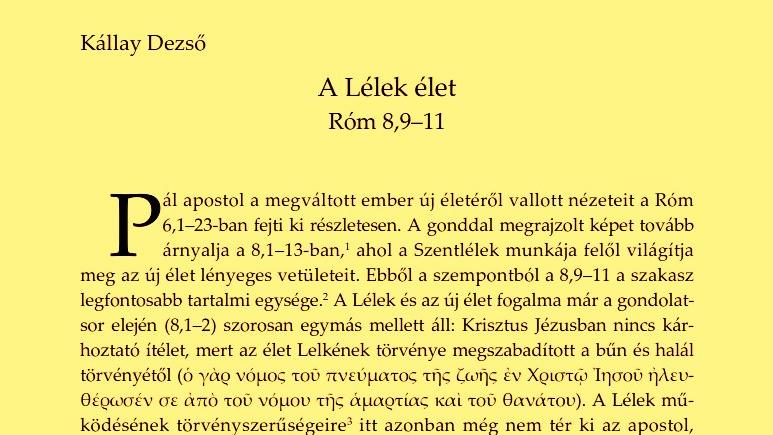Megszentelés
A jelen írás a megszentelés bibliai, hitvallási és dogmatikai értelmezése körüli félreértéseket és az ezek nyomán kialakult téves egyházi gyakorlatot kívánja szemügyre venni. A kérdésről szóló bibliai és egyházi tanítást csak annyiban vázolja, amennyiben a benne rejlő igenből a nemek is érthetőbbé válhatnak.
